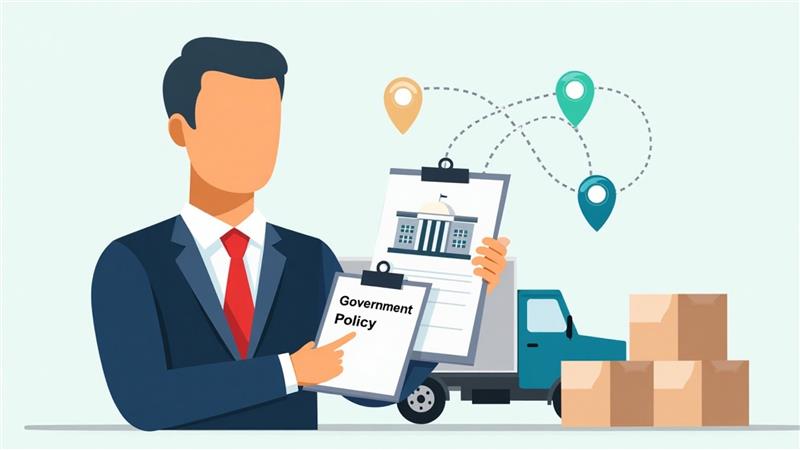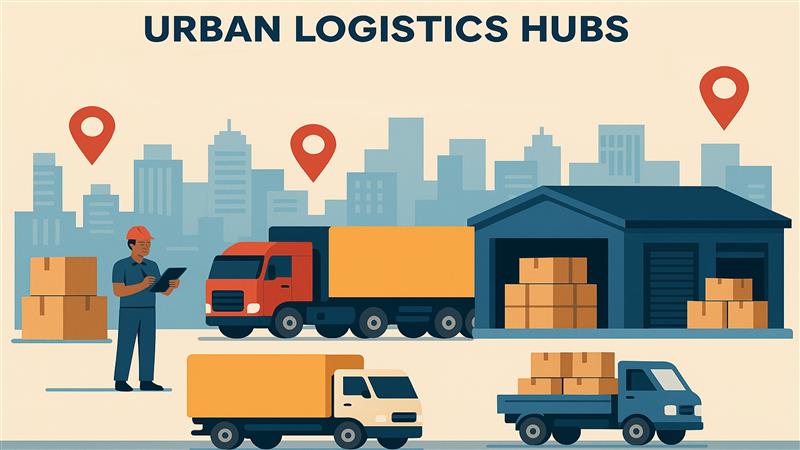Surging ahead with a post-pandemic recovery, the global logistics sector is on track to grow to over $14 trillion in 2028. (Statista) Traditional operating models have become inefficient due to supply chain disruptions, shifting consumer demand, and geopolitical uncertainties. For example, the Red Sea crisis in early 2024 caused a 12% delay in global trade (The Maritime Executive, 2024).
Innovators and disruptors in the shipping industry are reliant on one main powerhouse – the Global Capability Centres or GCCs who provide customized solutions that address digital transformation, adheres to environmental regulations, address automation gaps and design an agile supply chain. As a leader in this space, Astravise Services devises transformative solutions with an emphasis on inventory control and warehouse management—two essential components of operational resilience—this article examines how the GCCs are influencing changes in logistics. We’ll also look at typical problems and how the GCC turns them into opportunities.
1. The Strategic Imperative: Why Logistics Firms Need GCCs
Critical supply chain vulnerabilities were highlighted by the COVID-19 pandemic – only 22% of businesses had visibility beyond Tier-1 suppliers (McKinsey, 2022). GCCs improve the resilience of supply chains by providing:
- Cost optimization: Using centralized process management to cut operating expenses by 25–30% (Gartner, 2023).
- Scalability: Using tech-driven, modular workflows, businesses can react quickly to changes in the market.
- Risk Mitigation: Using predictive modelling to control interruptions and modify logistics plans as necessary.
GCCs help logistics companies move from reactive problem-solving to proactive strategy execution by combining IT, analytics, and R&D functions.
Overcoming Implementation Challenges
Making the switch to a supply chain model driven by the GCC necessitates an initial investment in process redesign, automation, and hiring talent. Typical obstacles include:
- High Initial Costs: A significant financial investment is required to implement automation and data analytics technologies.
- Resistance to Change: Workers might be reluctant to embrace new procedures and technological advancements.
- Integration Complexity: Careful planning is required to match GCC operations with current logistics frameworks.
2. GCCs in Action: Core Capabilities Reshaping Supply Chains
- Digital Twin Technology: By combining local knowledge with global scalability, Global Capability Centres serve as centres for innovation. Creating virtual models of supply chains to optimize routes and resource allocation in real-time is one of the key capabilities of digital twin technology.
- AI-Powered Demand Forecasting: Using machine learning, forecast errors can be decreased by as much as 50% (Deloitte, 2023).
- Supplier Collaboration Platforms: Enhancing transparency and coordination among 3PL partners and vendors.
GCCs facilitate the use of data in decision making, enabling organizations to identify potential issues and quickly adjust to market changes. As organizations work to streamline operations, GCCs facilitate the use of real time data while enhancing strategic flexibility.
3. Enhancing Warehouse Management: Precision at Scale

Modern warehouses are more than warehouses—they are smart storages that leverage current technology, such as IoT sensors, autonomous robotics, and AI-driven warehouse management systems. However, there are several significant challenges in scaling your automation:
- Cost of Automation: Working alongside robots and AI-based systems can be capital intensive, but drive productivity. Automation leads to accelerated picking and packing, driving up productivity by nearly 4x (McKinsey, 2024). In addition, IoT sensors enable real-time tracking of temperature, humidity, and stock levels, ensuring better quality control and faster response to disruptions.
- Smart Warehouse Management Systems (WMS): With integrated ERP systems, GCCs can reduce manual errors significantly. These systems provide real-time inventory visibility, predictive analytics for stock replenishment, and optimized workflows for faster order fulfilment.
4. Inventory Control Reimagined: From Reactive to Predictive
Inventory mismanagement costs the global economy over $1.1 trillion annually (DHL, 2023). GCCs address this through:
1. Predictive Analytics:
- By analysing historical data, we can predict demand changes, which helps cut down stockouts.
- Implementing Just-in-Time (JIT) inventory management helps keep costs low.
2. Real-Time Visibility:
- With Radio Frequency Identification (RFID) and blockchain tracking, we can achieve 99% accuracy in inventory.
- The unchangeable nature of blockchain’s ledger protects against data tampering, which is crucial for high-value items.
3. Circular Supply Chains:
- AI technology helps identify deadstock, allowing firms to repurpose excess inventory and reduce waste by 30%.
5. The Astravise Services Advantage: Why India? Why Us?

What Sets Astravise Services Apart ?
- Ensuring adherence to global quality and security standards.
- Proactive communication with clients.
- End-to-end support: from strategy development to implementation.
India is poised uniquely to support global businesses in establishing GCCs here due to its accessibility to two things:
- Highly Skilled Workforce: 1.5 million STEM graduates annually fuel innovation (NASSCOM, 2023). Get full advantage of the brightest tech minds while investing in global growth
- Cost Efficiency: Operating costs are 40-50% lower compared to global average. With efficient automation and affordable operational expenses, lower costs and accelerate time-to-market.
Why should you partner with Astravise Services to grow your business?
- A local leader with global impact: With over 80 years of directors combined experience in managing legal, tax, financial, and regulatory frameworks across geographies, we help you set up your GCC in no time
- Access to the right talent: Effective talent strategies significantly boost business productivity. With our expansive network of tech specialists, you gain access to top-tier talent to drive results.
- The 3Ps Advantage: Let us handle the 3 P’s – paperwork, personnel and people, while you focus on growth.
6. The Road Ahead: GCCs as Catalysts for End-to-End Excellence
The future of logistics is set to be transformed by groundbreaking technologies and eco-friendly innovations. With the help of generative AI, companies will be able to optimize routes in real-time, cutting down on transit delays and saving on fuel costs. Also, carbon-neutral warehouse designs will be crucial in achieving ESG (Environmental, Social, and Governance) objectives, making sure that supply chains are not only cost-effective but also environmentally friendly.
Advanced platforms for collaboration among suppliers, carriers, and customers will make it easier to integrate logistics networks, boosting efficiency and responsiveness throughout the supply chain. By embracing these advancements, logistics companies can enhance their operations while supporting global sustainability efforts.
In an era of volatility, Global Capability Centres are no longer a luxury—they are a necessity. By partnering with Astravise Services, logistics firms can streamline operations, enhance warehouse efficiency, and master inventory control while overcoming implementation challenges.
Ready to future-proof your supply chain? Schedule a free consultation today at www.astraviseservices.com or connect with our experts.










